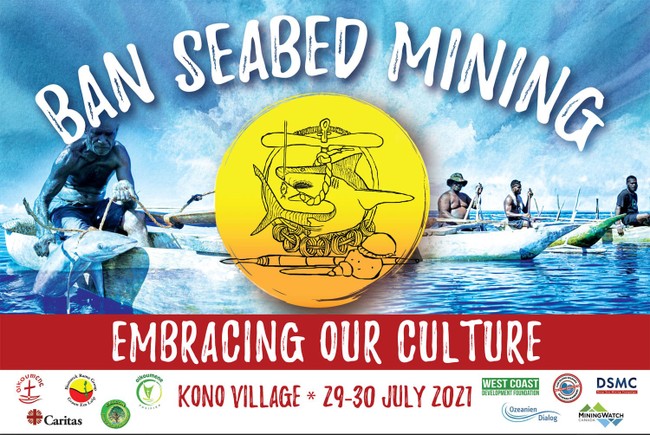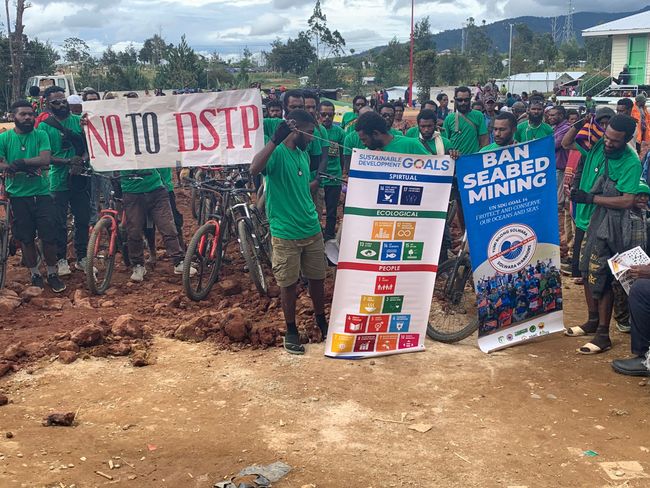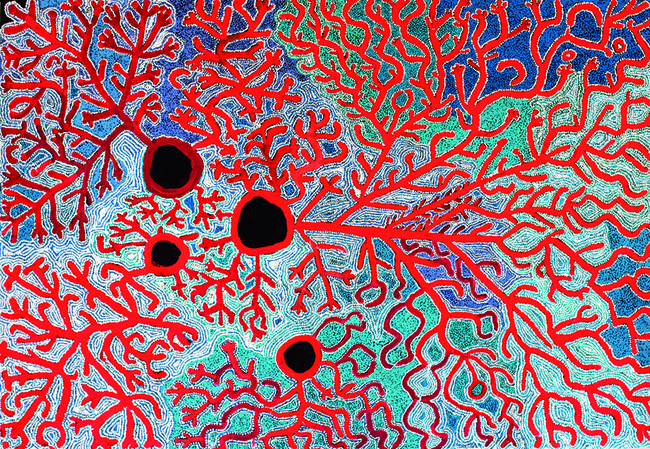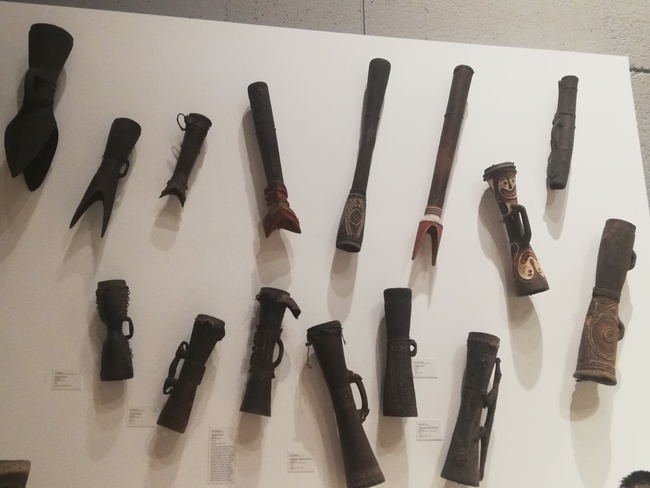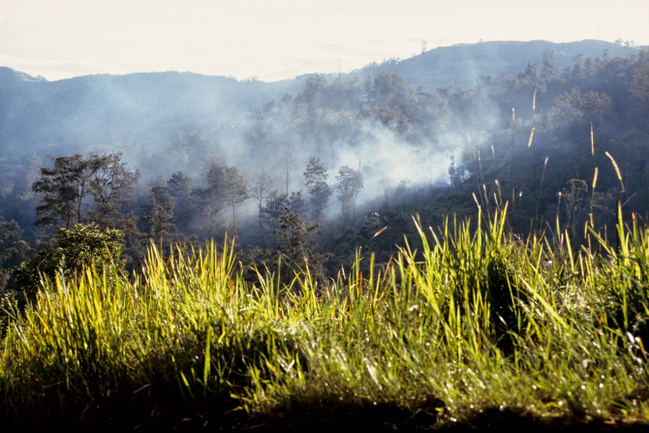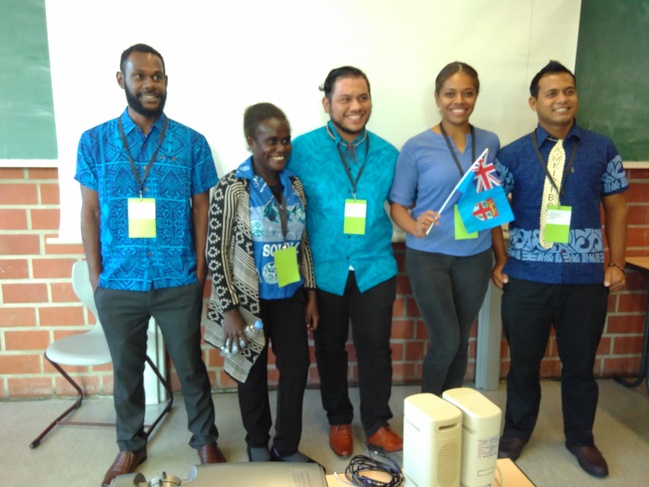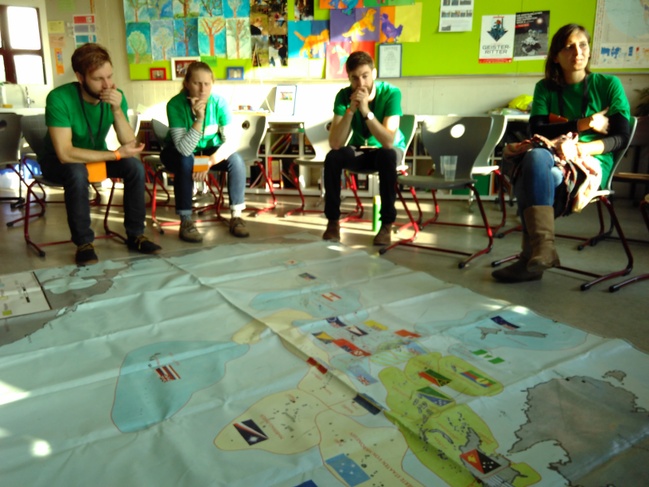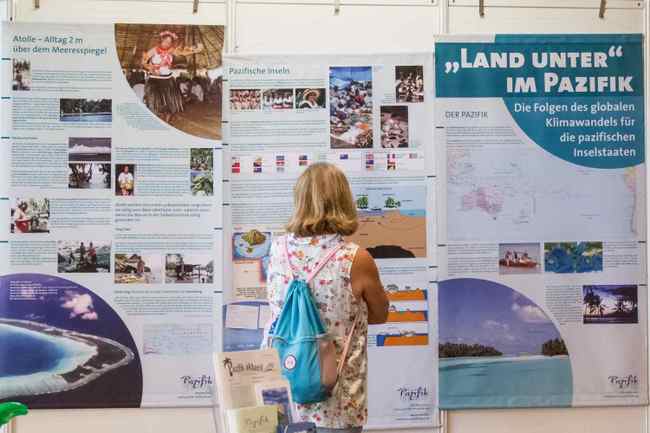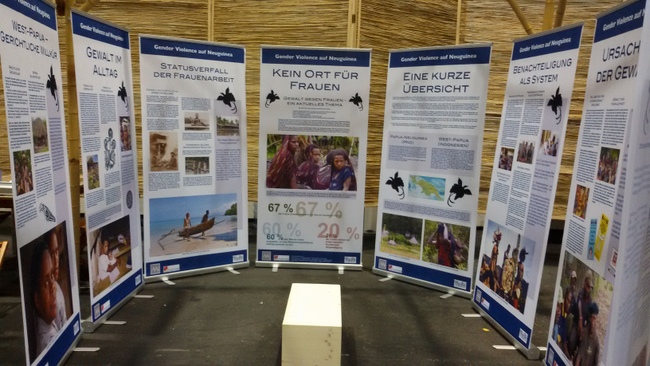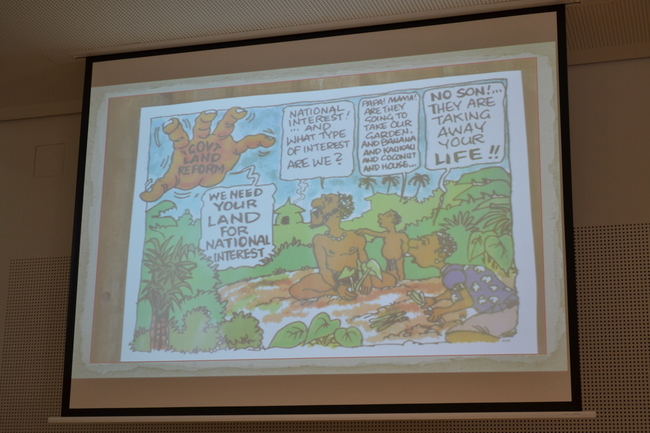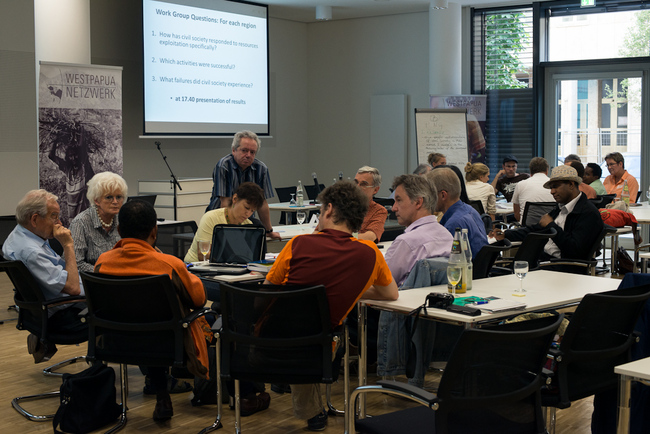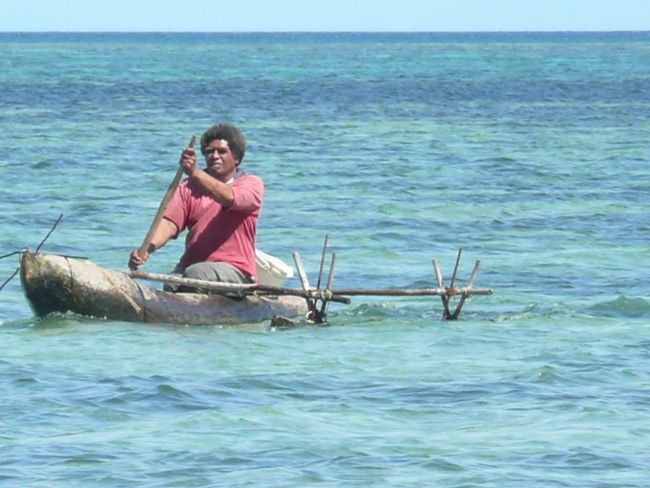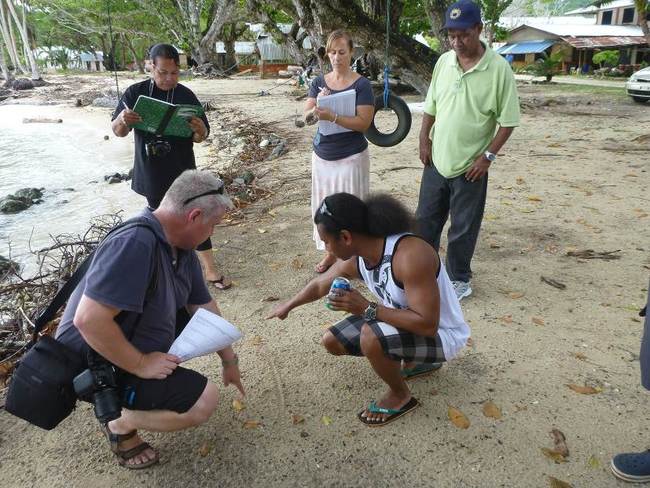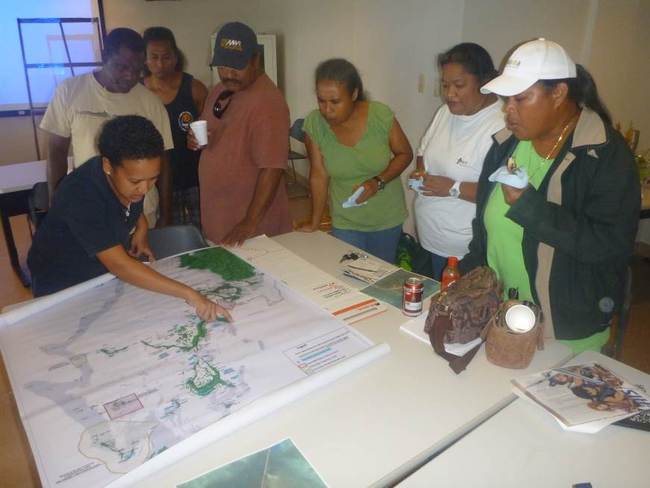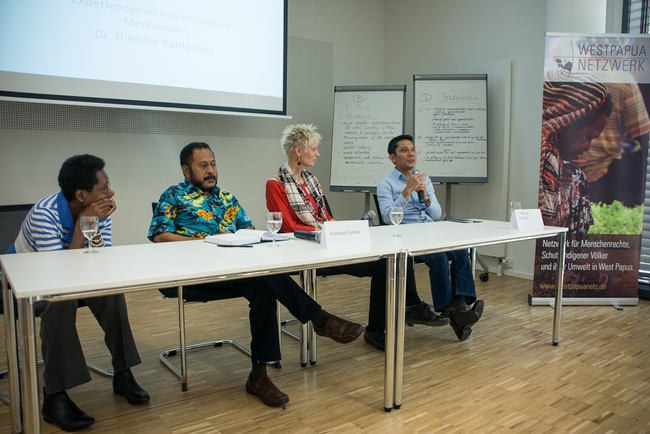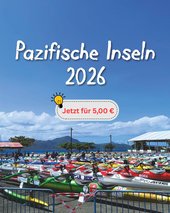FORUM COMMUNIQUE - FORTY-SECOND PACIFIC ISLANDS FORUM
13.09.2011: Neuseeland
FORUM COMMUNIQUÉ
The Forty-Second Pacific Islands Forum was held in Auckland, New Zealand, from 7 to 8 September 2011 and was attended by Heads of State and Governments of Australia, the Cook Islands, Federated States of Micronesia, the Republic of Kiribati, the Republic of Nauru, New Zealand, Niue, the Republic of Palau, the Republic of the Marshall Islands, Papua New Guinea, Samoa, Solomon Islands, Tonga and Tuvalu.
The Republic of Vanuatu was represented by its Special Envoy.
New Caledonia and French Polynesia attended the formal session as Associate Members.
Timor-Leste, Tokelau, Wallis and Futuna, the Asian Development Bank, the Commonwealth Secretariat, the United Nations (UN), Western and Central Pacific Fisheries Commission (WCPFC), and the World Bank attended as Observers.
The Forum Retreat was held on Waiheke Island.
2. Leaders expressed their deep gratitude to the Prime Minister, the Government and people of New Zealand for the excellent arrangements made in hosting the 2011 Leaders’ meeting, and for the kind hospitality extended to them during their stay in Auckland.
Leaders also expressed their sincere appreciation to the t?ngata whenua and citizens of Auckland for the warm reception received and goodwill extended during their participation in the 2011 Forum meeting.
Leaders acknowledged the significance of this meeting being the 40th anniversary of the founding of the Forum, and the many achievements of the Pacific region during this period.
Leaders noted the appropriateness of convening in New Zealand which hosted the inaugural meeting of Leaders in 1971.
SUSTAINABLE ECONOMIC DEVELOPMENT
3. Leaders welcomed New Zealand’s theme for the 2011 Forum of “Converting Potential into Prosperity” aimed at highlighting the many assets and resources of the Pacific that can be enhanced and developed to deliver long-lasting benefits. Leaders endorsed the Waiheke Declaration on Sustainable Economic Development which is attached as Annex 1. Leaders recognised the importance of focussing regional efforts on productive sectors where the Pacific has a comparative advantage – in particular, tourism, fisheries and agriculture. They also highlighted the importance of education, energy and infrastructure in creating an enabling environment for sustainable economic development. Leaders recognised that this focus is aligned with the national development priorities and plans of a number of Members. They also acknowledged the importance of trade integration and labour mobility for Forum Island Countries.
4. Leaders affirmed that inclusive and sustainable economic development would lead to improved quality of life and enhanced opportunities for the peoples of the Pacific. They welcomed the opportunity provided by the Private Sector Dialogue to engage directly with Pacific business representatives on the role of the private sector in driving sustainable economic growth and creating employment opportunities. Leaders emphasised the need for governments to foster an environment that encourages entrepreneurship and allows business, particularly small and medium-sized enterprises, to thrive.
FISHERIES
5. Leaders reaffirmed the importance of maintaining regional solidarity for the effective management and conservation of highly migratory fish stocks in the Western and Central Pacific Ocean for the benefit of the region. They recognised significant developments in the fisheries sector, including: fisheries science, conservation and management measures under the WCPFC; re-negotiation of the Multilateral Fisheries Treaty with the United States to generate increased economic benefits; early ratification of the convention establishing the South Pacific Regional Fisheries Management Organisation; and enhanced monitoring, control and surveillance activities, including negotiations towards the conclusion of a Niue Treaty subsidiary agreement. Leaders particularly emphasised the significance of the Multilateral Fisheries Treaty and urged an early conclusion of negotiations aimed at securing fair and maximum returns to the Pacific Islands Parties.
6. Leaders acknowledged the importance of the region maximising the economic benefits from fisheries to support sustainable economic development, including through the Regional Economic Integration project. They recognised the valuable contribution of coastal fisheries and aquaculture to food security and economic development. Noting the importance of ongoing assistance to provide financial support for national and regional fisheries programmes, Leaders undertook to discuss this matter with development partners, as appropriate.
7. Leaders expressed concern about the damaging effect of illegal, unreported and unregulated (IUU) fishing on the sustainability of fish stocks and economic returns to Forum members. Leaders requested the appropriate regional organisations and partner countries to continue efforts to strengthen and expand the effectiveness of monitoring, surveillance and enforcement capabilities across the region. They noted with appreciation the contribution by Australia and New Zealand to fisheries development and to strengthening monitoring, control and surveillance capabilities in Forum Island Countries.
TRANSPORT AND ENERGY
8. Leaders emphasised the importance of reliable transport links, secure access to energy, and other supporting infrastructure for the sustainable economic development of the region. They reaffirmed their commitment to renewable energy and the promotion of energy efficiency. Leaders also acknowledged the need to make significant progress in the diversification of sources of energy by developing domestic renewable energy to reduce their reliance on imported fuels.
9. Leaders agreed on the value of energy audits and of developing credible whole of sector plans such as “energy road maps” and structures to improve energy security, reduce dependency on fossil fuel for electricity generation and improve access to electricity. Leaders expressed support for the development of effective management of fuel supply risks, meeting energy efficiency targets including expanding the existing electrical appliance energy efficiency standards and labelling programme to help realise significant energy savings. They acknowledged the benefit of facilitating greater private sector participation in the Pacific energy sector by systematically reducing barriers to the uptake of distributed generation.
10. Leaders called on development partners to assist in the implementation of these activities, the implementation of national energy sector plans and targets and to strengthen coordination of their financing activities.
TOURISM
11. Leaders acknowledged the major contribution of tourism to economic growth across the Pacific region, including employment generation. They highlighted the opportunities for all countries to develop highly sophisticated tourism operations on the basis of the unique natural beauty and vibrant cultures of the region. Leaders emphasised the need for critical infrastructure to support growth in the tourism sector as well as the need to focus on enhanced local community participation and ownership. Leaders recognised the untapped potential of cruise ship tourism to the region and the need for appropriate infrastructure and assistance to capitalise on this, including through adequate resourcing of the South Pacific Tourism Organisation.
EDUCATION
12. Leaders reaffirmed their commitment to raising educational standards, improving participation rates, and expanding market-relevant vocational and technical training. Leaders welcomed Australia and New Zealand’s announcement that they would work to ensure 500,000 more children in the Pacific are enrolled in school and that 75 percent of children can read by the age of 10 by 2021. Leaders also welcomed Australia’s ongoing support for the Australia Pacific Technical College.
TRADE
13. Leaders noted the high priority placed by the region on the successful conclusion to the Economic Partnership Agreement (EPA) negotiations in 2012. Leaders agreed that negotiations on the Pacific Islands Countries Trade Agreement (PICTA) Trade in Services and the Temporary Movement of Natural Persons and PACER Plus would also be progressed as matters of priority, and that they continue to be kept informed of progress. Leaders urged those countries yet to complete arrangements to trade under PICTA to do so forthwith.
LABOUR MOBILITY
14. Leaders acknowledged the mutual benefits derived from effective labour mobility schemes, highlighting the contribution they make to people’s livelihoods and private enterprise in sending and receiving countries. They recognised the important ongoing contribution to Pacific employment of New Zealand’s Recognised Seasonal Employer Scheme and welcomed Australia’s announcement to expand its Pacific Seasonal Worker Pilot Scheme to include four more Forum members.
CLIMATE CHANGE
15. Leaders reaffirmed that climate change remains the single greatest threat to the livelihoods, security and well-being of the peoples of the Pacific. They welcomed the historic visit of UN Secretary-General Ban Ki-moon to the Pacific to see firsthand the degree of vulnerability of the people of the Pacific to the adverse impacts of climate change and sea level rise, as exemplified by the case of Kiribati. They also welcomed the presentation by the President of the European Commission, José Manuel Barroso, and support for regional efforts and strong international action to address the impacts of climate change.
16. Leaders stressed the critical and urgent need for adaptation finance to enable Forum Island Countries to respond to the adaptation needs of its people, in particular those already suffering, are displaced or are being displaced as a result of the detrimental impacts of climate change. They welcomed advice provided by Forum Economic Ministers on the options for accessing and managing climate change funding at their meeting in Apia in July 2011. To advance this process, Leaders tasked the Forum Secretariat to set out by the first quarter of 2012 the detail of how the national and regional options could work in practice for appropriate consideration at relevant regional meetings. In undertaking this work, the Forum Secretariat should assess the feasibility of the options and associated risks and benefits, taking into account as appropriate, the specific capacities and needs of respective countries and the potential in possible combinations of various national and regional options.
17. Leaders emphasised the need to secure appropriate governance arrangements, disbursement modalities and procedures which accommodate the particular constraints of Forum Island Countries in the development of the Green Climate Fund and in the operation of other financing opportunities. They recognised the unique capacity constraints facing Forum Island Countries, noting that capacity supplementation was critical to ensure they are able to effectively and sustainably respond to climate change. Leaders called on development partners, including global funds, to ensure that capacity funding for Forum Island Countries is flexible and ideally channelled through national systems to support capacity supplementation and institutional strengthening, in addition to traditional capacity building efforts.
PACIFIC PLAN
18. Leaders welcomed the Pacific Plan Annual Progress Report 2011 on implementing the priorities endorsed by them at the Cairns Forum in August 2009 and recognised a number of achievements over the course of the last twelve months, including:
a. in the fisheries sector, a number of regional maritime surveillance activities were conducted to detect and deter illegal, unreported and unregulated (IUU) fishing; b. in the area of climate change, the establishment of the CROP Executive Sub-Committee on Climate Change to coordinate the efforts of regional agencies; c. in response to a request from Leaders, completion of a major study on options to improve access to and management of climate change financing; and d. the completion of peer reviews in Vanuatu, Niue and Tuvalu as part of the implementation of the Cairns Compact on Strengthening Development Coordination in the Pacific (Forum Compact).
19. Leaders re-affirmed that the Pacific Plan remains the master strategy for regional integration and cooperation. Leaders acknowledged the value of the Forum Compact in supporting the implementation of Pacific Plan priorities, providing the principles and processes for coordinated delivery. Leaders noted the proposed development of the Pacific Plan performance framework and endorsed the approach of using existing regional processes to track implementation of Pacific Plan priorities for reporting.
CAIRNS COMPACT ON STRENGTHENING DEVELOPMENT COORDINATION IN THE PACIFIC (FORUM COMPACT)
20. Leaders commended the efforts of the Forum Secretariat in implementing the Forum Compact and endorsed the two reports presented – the 2011 Tracking the Effectiveness of Development Efforts in the Pacific Report, and the 2011 Pacific Regional Millennium Development Goals (MDGs) Tracking Report. Leaders recognised the importance of continuing efforts by Forum Island Countries, with the support of development partners, in identifying concrete steps, taking necessary action and monitoring implementation to improve development coordination and outcomes.
21. Leaders welcomed progress made under the Forum Compact in 2011 and recognised the efforts of Forum Members, the Forum Secretariat, partner agencies and development partners in strengthening development coordination across the region. Leaders recognised the importance of increased effort across the region to strengthen public financial management through the use of diagnostic tools and processes such as Public Expenditure and Financial Accountability assessments. Leaders commended the positive experience of the 2011 peer reviews held in Vanuatu, Tuvalu and Niue. They welcomed progress made in implementing the outcomes of the 2010 peer reviews in Nauru and Kiribati, noting the benefits of sharing experiences and identifying good practices to improve development outcomes.
22. Leaders agreed to showcase evidence and experience gathered during implementation of the Forum Compact as part of a coordinated regional position at the Fourth High Level Forum on Aid Effectiveness (HLF4) to be held in Busan, Republic of Korea from 29 November to 1 December 2011.
HEALTH
23. Leaders recalled the Honiara Communiqué on the Pacific Non-Communicable Disease (NCD) Crisis issued by Health Ministers on 30 June 2011, which highlighted the impact of the rapid increase and prevalence of NCDs in the region. Deeply concerned that an estimated 75 percent of all adult deaths in the Pacific were due to NCDs, with the majority of the deaths occurring in adults in the economically-active age bracket, Leaders acknowledged the huge economic losses due to NCDs and the resultant impact on national health budgets and possibly the region’s ultimate achievement of the MDGs. Leaders adopted the Forum Leaders’ Statement on Non-Communicable Diseases attached as Annex 2. Leaders undertook to maintain close attention to the issue in collaboration with major development partners and to deliver strong statements on the crisis facing the region at the UN High-Level Meeting on NCDs in September 2011.
REGIONAL YOUTH INITIATIVE
24. In welcoming the 2011 Urban Youth in the Pacific: Increasing Resilience and Reducing Risk for Involvement in Crime and Violence report prepared by the Forum Secretariat and UNDP, Leaders acknowledged the need for greater action in mainstreaming youth issues nationally and regionally, increasing employment and other meaningful opportunities for youth, and including the voice of youth in decision making. Leaders endorsed the Key Guiding Principles contained in the report. They also commended ongoing and complementary work in the region on youth and conflict issues, including the recent Wansolwara Youth Peace-building Conference and the important matters highlighted in their Statement.
25. Leaders underlined the important role of government, the private sector and technical and vocational training institutions in urgently addressing youth unemployment. Leaders also recognised the need for the development of a regional framework for youth employment, the contribution that labour mobility offers, and emphasised the importance of having annual labour and employment statistics that are disaggregated by gender and age. Leaders also highlighted the vital importance of sport in assisting young people to stay healthy, contribute to society and develop into leaders of their communities. In this regard, Leaders welcomed Australia’s Sports Outreach Programme.
REGIONAL SPORT
26. Leaders noted the Communiqué of the Second Pacific Islands Sports Ministers held in Noumea on 28 August 2011 and welcomed their agreement to promote sport to address the challenges posed by NCDs and issues affecting youth in the Pacific.
REGIONAL GENDER INITIATIVE
27. Leaders highlighted the importance of gender equality and agreed to intensify efforts to promote women’s equal role in decision-making at all levels, and to continue to improve advocacy for women’s leadership and the empowerment of women as leaders. Leaders committed to increase the representation of women in legislatures and welcomed initiatives being pursued in several Forum members, in this regard.
SEXUAL AND GENDER-BASED VIOLENCE (SGBV)
28. Leaders commended the valuable contributions of the Forum Reference Group to Address SGBV towards meeting their 2009 commitment to eradicate SGBV and ensure all individuals have equal protection under the law and equal access to justice. Leaders undertook to consider inviting the SGBV Reference Group to undertake in-country consultations in their respective countries.
REGIONAL ASSISTANCE MISSION TO SOLOMON ISLANDS (RAMSI)
29. Leaders commended the continuing strong leadership and commitment of the Solomon Islands Government and RAMSI in implementing the Leaders’ decisions taken at the 2010 Forum regarding RAMSI to ensure lasting benefits for the people of Solomon Islands. In particular, Leaders welcomed the spirit of cooperation being shown under the SIG-RAMSI Partnership Framework and noted the critical importance of maintaining the regional character of RAMSI during its transition phase.
FIJI
30. Leaders acknowledged the Forum’s ongoing work to encourage and support Fiji’s return to parliamentary democracy in accordance with the Leaders’ mandates and the Biketawa Declaration, cognisant of the Leaders’ decisions at Port Moresby and Cairns in 2009, and Port Vila in 2010.
31. Leaders welcomed the convening of the Ministerial Contact Group (MCG) meeting held in Port Vila on 14 February 2011 but expressed disappointment that a visit by the MCG to Fiji did not occur prior to the Forum Leaders’ meeting and called for a visit to take place as soon as possible, involving meetings with a range of stakeholders. Leaders tasked the MCG to continue dialogue and engagement with Fiji and report to the next Leaders’ meeting.
32. Leaders reiterated their call for commencement of genuine, inclusive political dialogue in Fiji between parties without preconditions or predetermined outcomes. In doing so, they also reaffirmed the underlying values of the Forum, namely respect for democracy, good governance and the rule of law, and expressed their continuing deep concern at the deteriorating human rights situation and serious political and economic challenges facing the people of Fiji.
33. Leaders reaffirmed the clear commitment of all Forum members to encourage and support Fiji’s early return to parliamentary democracy, including their standing offer of practical assistance in addressing the challenges faced by Fiji.
34. Leaders agreed to permit Fiji to participate in PACER Plus meetings at officials-level only, given Fiji’s important economic role and links to prospects for broader regional economic integration.
HUMAN RIGHTS
35. Leaders welcomed the successful participation of all Forum members in the first round of the Universal Periodic Review (UPR) to the UN Human Rights Council as major regional achievement. They acknowledged the support and assistance to Members in their reporting efforts from the Forum Secretariat, the Regional Rights Resource Team of the Secretariat of the Pacific Community and the UN Office of the High Commissioner for Human Rights. Leaders noted the development of this cooperation, and the networks created by this activity, represent an important source of human rights expertise for the entire region.
ENGAGEMENT WITH CIVIL SOCIETY
36. Leaders welcomed the Secretary General’s initiative to convey the views of civil society on a range of challenges facing the Pacific. Leaders recognised many of the issues identified by civil society were ones already on the regional agenda. Leaders highlighted this commonality and noted that meaningful engagement with civil society was vital in finding the best path forward. Leaders tasked the Secretariat to determine, as appropriate, practical means to ensure civil society perspectives continue to be reflected in Forum policy formulation and are able to be conveyed to future Forum Leaders’ meetings
WWII ORDNANCE AND SHIPWRECKS
37. Leaders expressed concern at the continuing existence of unexploded WWII ordnance (UXO) which remains a human security problem for many Members, as well as a threat to public health, safety and the environment. They also recognised that UXO poses a serious obstacle to development. Leaders welcomed the development of the Regional UXO Strategy Framework as a practical approach to addressing the challenges of UXO in the region and called on the assistance of relevant international bodies and development partners in addressing this long neglected issue. 38. Leaders noted the risk to the environment posed by oil leakage from WWII shipwrecks in the region and called for the safe removal of oil from those shipwrecks such as in the Chuuk Lagoon in the Federated States of Micronesia, Solomon Islands and the Republic of the Marshall Islands.
INTERNATIONAL DISARMAMENT ISSUES
39. Leaders welcomed progress by the Preparatory Committee to the United Nations Conference responsible for negotiating an Arms Trade Treaty (ATT) that would help deter and prevent illicit trafficking and proliferation of arms, including small arms and light weapons. Leaders also expressed support for the development of a common Forum position on an ATT and to ensure a strong and proactive voice in ATT negotiations.
40. Leaders noted that 2011 marks the fifteenth anniversary of the Comprehensive Nuclear Test Ban Treaty (CTBT) being opened for signature. They encouraged all States to become Party to the CTBT given its importance as a practical and effective means to advance nuclear non-proliferation and disarmament.
RADIOACTIVE CONTAMINANTS IN THE REPUBLIC OF THE MARSHALL ISLANDS
41. Leaders recognised the special circumstances pertaining to the continued presence of radioactive contaminants in the Republic of the Marshall Islands and reaffirmed the existence of a special responsibility by the United States of America towards the people of the Marshall Islands, who have been, and continue to be, adversely affected as a direct result of nuclear weapons tests conducted by the United States during its administration of the Marshall Islands under the United Nations Trusteeship mandate.
42. Leaders reiterated their call on the United States of America to live up to its full obligations on the provision of adequate compensation and commitment to its responsibility for the safe resettlement of displaced populations, including the full and final restoration to economic productivity of all affected areas. Leaders noted advice that the U.S. Government has taken a position that all avenues to respond to the Changed Circumstances Petition under the original Compact as well as the amended Compact have been exhausted but undertook to consider submitting a letter to the U.S. Government urging the U.S. to take action in the aftermath of the Congressional hearings that established the lingering needs resulting from the U.S. Nuclear Testing Program.
43. Leaders undertook to support the Marshall Islands on this issue at the United Nations General Assembly, the United Nations Security Council, and other international fora. Leaders noted the UN Trusteeship resolutions 1082 (1954) and 1493 (1956) and expressed support for the Republic of Marshall Islands’ engagement with the UN Secretary General and UN General Assembly regarding the report on the effects of atomic radiation in the Marshall Islands called for in UNGA resolution A/RES/65/96, and for further follow-up action to address the report. To this end, Leaders also agreed to submit a letter to the UN Secretary-General.
PACIFIC OCEANSCAPE
44. Leaders reiterated the critical importance of ensuring the sustainable development, management and conservation of our ocean, noting the region’s unique dependency on the Pacific Ocean as the basis for their livelihoods, food security and economic development. Leaders called for the 2012 United Nations Conference on Sustainable Development (Rio+20) to recognise the significant global value and contribution of the Pacific Ocean to sustainable development, acknowledging the stewardship of Pacific Island Countries.
45. Leaders further urged the international community to work towards integrated oceans management, using the Pacific Oceanscape as a model, with the aim of realising relevant international goals to contribute to the health and vitality of the ocean environment, including through the global network of marine protected areas agreed at Rio+10. Leaders also highlighted the threats to the ocean environment, including from ocean acidification, pollution, and illegal, unreported and unregulated fishing. To ensure that Rio+20 includes strong outcomes on the conservation and sustainable management of marine ecosystems and resources that reflect the needs of the Pacific region, Leaders also called for the maximisation of returns to Members from the conservation and sustainable management of ocean resources. Leaders welcomed the appointment of Tuiloma Neroni Slade as the Pacific Oceanscape Commissioner.
PACIFIC ENVIRONMENT COMMUNITY FUND
46. Leaders expressed appreciation of the efforts by the Forum Secretariat for the implementation of the projects on solar power generation, sea water desalination or hybrid of both types under the Pacific Environment Community Fund (PEC fund) provided by the Government of Japan. Leaders welcomed the announcement by the Government of Japan to host the 6th Pacific Islands leaders Meeting (PALM6) which will be held in Nago City, Okinawa Prefecture, Japan on 25 and 26 May 2012.
2005 AGREEMENT ESTABLISHING THE PACIFIC ISLANDS FORUM
47. Leaders urged those Forum members that have not yet done so to ratify the 2005 Agreement Establishing the Pacific Islands Forum as soon as possible.
RELATIONS WITH THE UNITED NATIONS
48. Leaders warmly welcomed the historic presence of the Secretary-General of the UN, Ban Ki-moon, in leading the UN observer delegation to the 42nd Pacific Islands Forum to help celebrate the organisation’s 40th year. Leaders expressed deep appreciation for the valuable contribution made by the UN to the Pacific region. They thanked the Secretary-General for the opportunity to discuss key challenges facing the region and highlighted the importance of the UN’s continuing support to ensure the achievement of the overall objectives of the Forum’s Pacific Plan.
49. In their discussions, Leaders also re-affirmed the shared values and principles of the Pacific Islands Forum and the UN, including important commitments to human rights, the rule of law, good governance and democracy. Leaders also welcomed the key partnerships which exist between the UN and its funds and programmes and the key regional institutions of the Pacific, particularly the Forum Secretariat. Leaders welcomed the undertaking of the UN Secretary General to convene regular meetings with them, particularly when they gather in New York for the UN General Assembly each September. The Joint Statement of the Leaders of the Pacific Islands Forum and the Secretary-General of the United Nations released on 7 September 2011 is attached as Annex 3.
CANDIDACIES
50. Leaders noted the success of regional cooperation and solidarity in highlighting Pacific issues within United Nations fora. Leaders recognised the importance of Pacific representation on the UN Security Council (UNSC) in ensuring that the UNSC remained informed on international issues of concern to the region. In that regard, Leaders reaffirmed their strong and unanimous support for Australia’s candidature for the UNSC for the term 2013-2014, and New Zealand’s candidature for the term 2015-2016.
SMALLER ISLAND STATES LEADERS’ MEETING
51. Leaders noted the outcomes of the Smaller Island States Leaders’ meeting.
PACIFIC ACP LEADERS’ MEETING
52. Leaders noted the outcomes of the Pacific ACP Leaders’ meeting.
FORUM PARTNERSHIP MECHANISMS
53. Leaders tasked the Forum Secretariat to develop a process for the reassessment of Post-Forum Dialogue (PFD) membership, with implementation to begin in 2012. The proposed review process of PFD membership would build on assessing PFD Partners against the existing PFD criteria, with expanded reporting on ODA effectiveness in the region. Leaders noted that this would require PFD Partners to submit regular reports to the Secretariat to enable preparation of a status report on PFD Partners for review at the Forum Officials Committee.
OBSERVER STATUS AT THE FORUM
54. Leaders recognised with appreciation the efforts of the ACP Group to enhance its cooperation with the Forum members and the Forum Secretariat and its support for important aspects of the region’s relations with a key development partner, the European Union, and invited the ACP Group to become a Forum Observer.
55. Leaders also recognised the vitally important role played by the United States and its territories in the Pacific by inviting American Samoa, Guam and the Commonwealth of Northern Marianas to become Forum Observers.
FRENCH POLYNESIA
56. Leaders recalled their 2004 decision to support the principle of French Polynesia’s right to self-determination. They reiterated their encouragement to French Polynesia and France to seek an agreed approach on how to realise French Polynesia’s right to self-determination.
POSITION OF SECRETARY GENERAL
57. In line with the rules established by Leaders in 2002, Leaders unanimously agreed to the reappointment of Tuiloma Neroni Slade as Secretary General of the Forum Secretariat for a second term of three years.
APPRECIATION
58. Leaders commended the outgoing Chair, Honourable Meltek Sato Kilman Livtuvanu, Prime Minister of Vanuatu, and the Government of Vanuatu for their leadership of the Forum over the past year.
VENUE AND TIME OF NEXT FORUM
59. Leaders welcomed the offer by the Government of Cook Islands to host the 2012 Pacific Islands Forum on dates to be determined.
Auckland, New Zealand 8 September 2011
Annex 1 : THE WAIHEKE DECLARATION ON SUSTAINABLE ECONOMIC DEVELOPMENT
We, the Leaders of the Pacific Islands Forum, meeting in Auckland, New Zealand:
• Acknowledging with gratitude the foresight of Pacific Leaders who forty years ago first met in Wellington, New Zealand, to establish what is today the Pacific Islands Forum involving sixteen independent member states of the Pacific region;
• Recognising the vision of Leaders at that first meeting who strongly encouraged the development of regional cooperation as a valuable mechanism to assist in resolving issues of common concern affecting the daily lives of the peoples of the Pacific;
• Celebrating the achievements accomplished through close and effective regional cooperation;
• Realising the economic and social challenges we all face, including those arising from climate change, the increasing costs and insecurities of supply of daily necessities such as energy and food, and the impacts of urbanisation and natural disasters;
• Expressing with appreciation the significant assistance received over the past four decades from the region’s development partners;
• Taking into account the strategic direction provided by the Pacific Plan for progressing the pillars of sustainable development and economic growth in the Pacific;
• Acknowledging the importance of good governance and security, the other two pillars of the Pacific Plan, in helping to deliver sustainable economic development outcomes;
• Reaffirming the importance of accelerating progress towards the Millennium Development Goals,
• Highlighting the benefits of advancing development coordination involving Pacific Countries and development partners, as articulated in the Cairns Compact on Strengthening Development Cooperation in the Pacific (Forum Compact);
• Sharing our aspiration to create a prosperous, stable and secure Pacific for future generations;
Hereby
• Declare that strengthened sustainable economic development is key to a better quality of life for all our peoples;
• Recommit ourselves to pursuing a goal of ensuring a sustainable economic environment for all, so that all our peoples, in particular the young who are the future of our societies, have opportunities for gainful employment and can live healthy, productive and safe lives;
• Recognise that sustainable economic development increases the resilience of communities, including their most vulnerable members.
• Set out to transform the region’s future by drawing on the Pacific’s unique assets by collectively focusing our efforts on areas where we have an impact on our peoples’ long-term wellbeing;
• Recognise that despite challenges related to our small size and our relative isolation, we live in an ocean of opportunity, that immense potential rests in our productive sectors, particularly fisheries, tourism and agriculture, and that capitalising on this potential is crucial for the future of the Pacific and the livelihoods of its peoples;
• Acknowledge the importance of sectors such as transport, infrastructure, education and energy in providing an environment in which the Pacific’s potential can be realised;
• Affirm the high importance of the private sector in helping realise the region’s potential;
• Acknowledge our responsibility to create an environment where business can thrive and contribute to the region’s development;
• Recognise the way in which regional and economic integration can improve the prospect of stable, long-term economic growth in Pacific communities by creating jobs, enhancing private sector growth, and raising standards of living, through the freer flow of goods, services and investment within the Pacific;
Pledge to:
• Pursue improved sustainable returns to Pacific island economies from the abundant natural resources, particularly fisheries, available from the wealth of our shared Pacific Sea of Islands; • Foster an environment that supports increased investment, productive activity and a strengthened private sector, particularly in relation to fisheries, agriculture and tourism, to generate income and employment; • Empower the next generation by significantly improving children’s access to quality basic education, so as to raise literacy and numeracy rates; • Improve the health status of our peoples so that they can enjoy more productive and less troubled lives and to relieve the burden on Pacific economies; • Conserve and manage fragile island ecosystems which underpin sustainable development and food and water security within our region;
Commit ourselves specifically to:
• Improve energy security through greater efficiency measures and the promotion of clean and affordable energy, including renewable energy; • Address the persistent problem of illegal, unregulated and unreported fishing in the Pacific through enhancing the effectiveness of regional monitoring, control and surveillance activities; • Promote the Pacific as an exciting and diverse tourism destination, and support the sector’s ability to generate income and employment for its peoples; • Raise educational standards and expand opportunities for acquiring technical and vocational skills relevant to job markets, especially for women, including through non-formal education and training provision; • Increase opportunities for women to participate in the formal labour market and as entrepreneurs; • Ensure the meaningful engagement of civil society and Pacific island communities in the development process; • Develop institutions that contribute to creating an enabling environment for private sector-led growth including by introducing appropriate regulatory and legal reforms; • Reduce barriers to regional trade and investment in order to expand access to markets for Pacific businesses and focus on building the capacity of economies to benefit from the trade and investment opportunities that arise; • Continue strengthening public financial management and development coordination as a means to improve development effectiveness and to adequately prepare and ensure efficient management of the influx of resources to address climate change; • Invest in improved infrastructure; • Support the development of niche, high value agricultural production and its links into global value chains, such as Fair Trade and organics;
Agree to strengthen the monitoring of progress against regional priorities;
• Undertake to examine further ways in which we might enhance regional cooperation and integration, including through enhancing the effectiveness of shared institutions, in order to promote efficient delivery of regional public goods, and improved services, to our businesses and peoples;
• Urge Pacific Regional Organisations to actively consider how their work programmes can contribute to economic growth and enhancement of the capacity of the productive sectors where applicable; • Call on our international partners to support, in a coordinated way, our endeavours by focusing their assistance on areas that directly and indirectly improve our ability to develop sustainable productive economies.
Annex 2 : Forum Leaders’ Statement on Non-Communicable Diseases
Leaders expressed their deep concern that non-communicable diseases (NCDs) has reached epidemic proportions in Pacific island countries and territories (PICTs) and has become a ‘human, social and economic crisis’ requiring an urgent and comprehensive response.
Leaders expressed alarm that 75 percent of all adult deaths in the Pacific are due to NCDs the majority of whom are in the economically active age bracket and that many more times this number suffer severe side effects that undermine their capacity to contribute further to economic development.
Leaders expressed grave concern that NCDs can undermine the achievement of the Millennium Development Goals (MDGs) which for a region that is already struggling to meet the 2015 targets provides an even greater challenge.
Conscious of the assessment by the World Economic Forum ranking NCDs as one of the top global threats to economic development, Leaders noted with concern the huge economic costs of NCDs in the Pacific and in particular the rapidly rising expenditure on NCDs comprising well over 50 percent of the total health budget of many island countries.
Leaders were particularly concerned that if allowed to continue unabated NCDs has the potential to undermine labour supply, productivity, investment and education, four of the main factors driving economic growth with potentially devastating consequences, especially in Pacific island countries and territories.
Leaders recognised the seriousness of the threat that NCD poses to the people in Pacific Island countries and territories and the urgency to address it and declared the ‘Pacific is in an NCD Crisis’.
Leaders welcomed the commitment by the Pacific Ministers of Health to provide sustained leadership and support for NCD prevention and control and lead ‘whole of government and whole of society’ approaches to address the NCDs crisis. Leaders also welcomed the commitment by Pacific Ministers of sports to help address NCDs through sports.
Leaders congratulated the Government of Palau for taking the unprecedented step of declaring ‘NCDs as a national crisis’ by Executive Order, acknowledging that such leadership and political commitment is called for to deal with this crisis in individual countries and within the region.
Leaders acknowledged that most of the interventions required to control NCDs exist outside of the health sector and called for a ‘whole of government and whole of society’ response to the crisis.
Leaders committed themselves and their governments to expedite implementation of the five key intervention areas that have been proven to reduce NCDs - tobacco control; improved diets – mainly through reduction of salt, fats and sugar; physical activity; reduced alcohol intake; and access to essential drugs and technologies, noting in particular that many NCD interventions are revenue-generating such as increases in taxes for tobacco and alcohol.
Leaders emphasised the importance of acting quickly and decisively and called on governments, private sector, civil society, regional and international organisations and development partners to work together to address this rapidly unfolding crisis. Leaders called on the Secretariat of the Pacific Community and the World Health organisation and other CROP agencies to work with all PICTs through their respective ‘whole of government, whole of society’ machineries to strengthen their capacities to address NCDs as a matter of urgency.
Annex 3 : JOINT STATEMENT OF PACIFIC ISLANDS FORUM LEADERS AND THE SECRETARY-GENERAL OF THE UNITED NATIONS
7 September, Auckland, New Zealand
Pacific Island Forum (PIF) Leaders and the Secretary-General of the United Nations (UN) met on 7 September 2011 during the 42nd Pacific Islands Forum in Auckland, New Zealand.
At their meeting, PIF Leaders acknowledged the valuable contribution made by the UN system in the Pacific, and welcomed the first ever attendance at the PIF by a Secretary-General of the UN.
The Secretary-General congratulated PIF Leaders on the 40th Anniversary of the establishment of the PIF, and acknowledged the key role it plays in promoting sustainable development, environmental protection, good governance and peace and security through regional cooperation in the Pacific. The Secretary General welcomed the focus at this year’s PIF on sustainable economic development.
PIF Leaders and the Secretary-General:
• Emphasised the value of cooperation between the UN system and the PIF and its associated institutions, and agreed to consider ways to further strengthen this cooperation.
• Agreed on the importance of sustainable economic growth in achieving the Millennium Development Goals (MDGs) in the Pacific; and discussed ways of enhancing the work of United Nations system in the region to support these efforts, including the possibility of utilising the MDG Acceleration Framework to help identify national priorities for action in each Pacific island country.
• Discussed key challenges facing the Pacific region and stressed the role of the UN system in assisting Pacific island countries to address these challenges, including through alignment of its programmes with the objectives and priorities established in the national sustainable development strategies of Pacific island countries and under international and regional frameworks including the Barbados Programme of Action (BPOA), the Mauritius Strategy, the Istanbul Programme of Action (IPOA) and the Pacific Plan.
• Stressed that climate change and ocean acidification remained the greatest threat to the livelihoods, security and well-being of the peoples of the Pacific; and reaffirmed the need for urgent international action to reduce emissions commensurate with the science and associated impacts of climate change and ocean acidification on the most vulnerable Pacific communities and peoples. They emphasised the need for an ambitious reduction of greenhouse gas emissions sufficient to enable the survival and viability of all Pacific Small Island Developing States (SIDS), and for the UNFCCC COP17 in Durban to deliver a comprehensive outcome consistent with this objective. They also stressed the need to address in all relevant international fora, including but not limited to the UNFCCC, the General Assembly and the UN Security Council, the urgent social, economic and security threats caused or exacerbated by the adverse impacts of ocean acidification and climate change, including the implications of sea level rise for the territorial integrity of Pacific SIDS and their continued existence as viable dynamic communities; and welcomed in this regard the recent Security Council open debate and Presidential Statement on the Maintenance of International Peace and Security: Impact of Climate Change. They highlighted the role of the UN system in supporting national, regional and international efforts to address these impacts.
• Stressed the critical importance of the sustainable development, management and conservation of the region’s oceans, coastal and fisheries resources as a source of livelihoods and income for communities, industries and governments, and of enabling Pacific SIDS to enjoy a greater share of the benefits derived from those resources. They called for such issues, often referred to as the ‘Blue Economy’, to figure prominently at next year’s UN Conference on Sustainable Development (Rio+20). They urged the international community to tackle threats to marine ecosystems and work towards integrated oceans management and a global network of marine protected areas.
• Acknowledged the UN’s key role in the maintenance of international peace and security and the PIF’s leading contribution to addressing regional peace and security challenges. They noted the value of enhanced cooperation and experience-sharing between the two Organizations on conflict prevention, peace-making, mediation, peace-keeping and peace-building, building on positive experiences in Bougainville and Solomon Islands.
• Noted a range of other areas in which cooperation between the UN and Pacific states would support the national priorities identified by PIF Leaders and the BPOA, Mauritius Strategy, IPOA and the Pacific Plan. These included: enhancing the productive capacity of Pacific SIDS; food security; renewable energy; disaster preparedness and risk reduction, and emergency relief and recovery; non-proliferation and disarmament, including controlling the illicit trade in small arms and light weapons and negotiation of an Arms Trade Treaty; addressing the ongoing impacts of nuclear testing in the Pacific; preventing and addressing the impacts of non-communicable diseases in the region; and promoting good governance, democracy, the rule of law and human rights, and addressing violence against women.
• Agreed on the importance, resources permitting, of ensuring an enhanced UN presence in the Pacific region, including at the country level, to promote effective dialogue and cooperation in priority areas of mutual interest, recognising recent steps by the UN system in this regard. • Reaffirmed the unique and particular vulnerabilities and development needs of SIDS, and emphasised the importance of enhanced coherence, coordination and responsiveness in the UN system's support for SIDS.
• Stressed the importance of regular high-level dialogue, and agreed to convene meetings between the Secretary-General of the UN and PIF Leaders at regular intervals, beginning on the margins of the opening of the 67th Session of the UN General Assembly in New York in September 2012.
